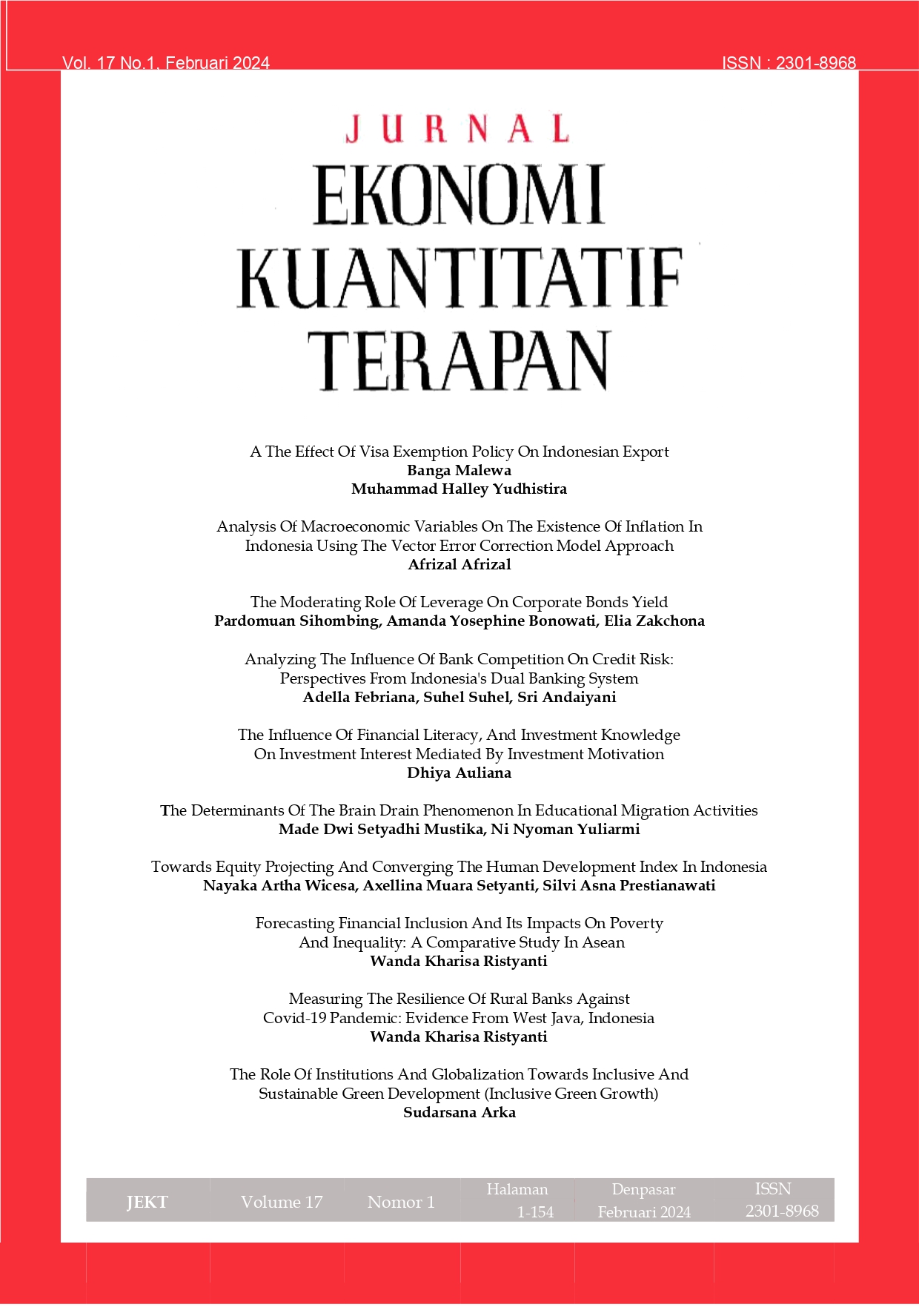Measuring the Resilience of Rural Banks Against COVID-19 Pandemic: Evidence from West Java, Indonesia
Abstract
The potential disruption of operational activities in rural banks is linked to MSME actors' inability to repay loans amid the COVID-19 pandemic. The quality of credit and financing provided by these banks is vital in ensuring income and interest continuity, thereby impacting profitability. This study aims to analyze the financial performance dynamics and factors influencing rural banks' profitability in West Java, Indonesia, during COVID-19. The research utilized multiple linear regression with REM estimation. Despite the pandemic's challenges, the ROA, CAR, and equity values of the rural banks met minimum standards, though NPL values exceeded maximum limits. The combined factors of CAR, NPL, equity, net income, and the pandemic collectively influence profitability. Specifically, NPL and the pandemic have significant negative effects, while net income positively impacts profitability. To bolster the resilience of rural banks during crises, suggested policy measures include strengthening capital reserves, tightening credit policies, implementing good governance practices, and enhancing operational cost efficiency.




















